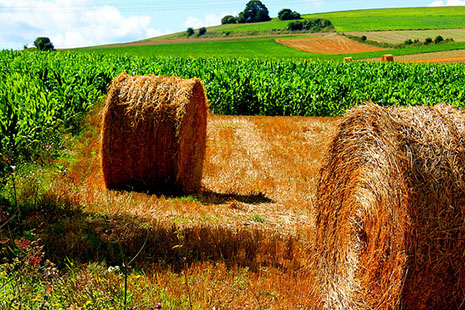A House in Flanders
By Michael Jenkins | Slightly Foxed | £12
SIR MICHAEL JENKINS, who died last month at the age of seventy-seven, was far from being a public figure, but he was nevertheless a man of some influence in the world. He is characterised in his obituary in the London Telegraph as “a skilful behind-the-scenes operator and a negotiator of considerable finesse.” These qualities were displayed in two highly successful careers: the first in diplomacy, culminating in his posting as Britain’s ambassador to the Netherlands from 1988 to 1993, and the second in investment banking, from which he went on to play an active role on the boards of various multinationals, and thence to continue in an advisory capacity until his death. Jenkins combined the instincts of the envoy with those of the entrepreneur, ensuring his success in both these worlds. It was the kind of success that is recognised from within, but barely noticed without – his energies were expended in the background, advising and facilitating and smoothing the way. He made an important contribution, for example, in the early days of Britain’s entry to the Common Market, serving for a time as chef de cabinet to one of the two British commissioners. But in among advising and facilitating and making other people look good, Jenkins also found time to write two books.
Arakcheev: Grand Vizier of the Russian Empire, appeared in 1969. Jenkins, who had learnt Russian during the war and studied it further at Cambridge, undertook his research for the biography while on post in Moscow, when he was still in his twenties and when the restrictions placed by the Soviets on embassy staff meant that he had time at his disposal. For a man whose professional duties required a certain self-effacement, Arakcheev was an interesting choice of subject. Military supremo under Alexander I, Arakcheev, who had a reputation for ruthlessness and cruelty (and formidable efficiency), was anything but self-effacing. But despite the larger-than-life nature of its subject, the book did not really find its mark. For scholars, it was not scholarly enough (“light and unsubstantial” was the judgement of one academic reviewer) and for the general reader the name Arakcheev itself was unlikely to stand out on the biography shelves. Arakcheev has thus gone the way of much historical biography, noticed on first appearance, but soon overtaken by the next wave, to be relegated in due course to the category of books available secondhand for a notional sum, one that hovers just above zero, plus postage.
It was three decades before Jenkins published again, and this time it was a memoir. A House in Flanders recalls the postwar summer he spent as a fourteen-year-old with an oddly assorted family in northern France, in their grand if faded country house that stood splendidly alone on the Flanders Plain. The mysterious connection between his own family – his parents, who are hardly present in the narrative, are described, as far as they are described at all, as cold and overly intellectual, and we discover only in passing that he has a younger brother – and the French family with whom he feels immediately at home, lies at the heart of the book, raising in an unforced way all kinds of questions about what it means to belong to a family, and what exactly is the nature of heritage.
A House in Flanders, which first appeared in 1992, was reissued in hardback (“with the addition of new material”) in 2010 by the publishing arm of the journal Slightly Foxed, resulting in a sufficiently encouraging reception to justify this new paperback edition. It is now getting on for ten years since Slightly Foxed began as a beautifully produced quarterly consisting of articles about unjustly neglected or forgotten books. Printed on cream paper and with commissioned illustrations on the cover, Slightly Foxed, with its knowingly retro yet up-to-date feel, caught the beginnings of what has become an ever-growing interest in recovered works, in books that have been pretty much buried by the ever-increasing tide of newness and are now in need of rescue. In tune with this trend, reissues have become another form of newness, supporting one of the major platforms of publishing, from Classics lists issued by the major imprints, to print-on-demand options, right through to facsimile editions of out-of-print works, churned out by companies with odd names and made available through Amazon. In the gaps are the smaller publishers, looking to build a loyal following through a combination of literary discernment and high production values.
In supplementing its periodical base by entering the reissue market, Slightly Foxed has chosen to focus in much of its list on a certain kind of autobiographical voice – elegiac, observant, stoical, quietly humorous. It is a voice that runs counter to the continuing fashion for misery memoirs (a fashion that seems to have been as much fuelled as checked by revelations surrounding the “truth” of many of these harrowing accounts of blighted lives) and it is a voice that is easy to get wrong. The quotation on the inside cover of A House in Flanders, taken from Dirk Bogarde’s over-egged review of the original edition, does not bode well in this regard: “a radiant book, a whole spectrum of colours and lights, of delights and elegances, of wistfulness and love.” Yet for all its dreamlike evocation of a long-ago summer, A House in Flanders is not the escapist son et lumière that this description suggests. Jenkins alludes to misery aplenty – to thwarted lives, to unhappy marriages, to the cruelties of war and the inevitability, for those whose lives are not cut short by violence, of mental and physical decline. Even within the comforting walls of the house in Flanders, there is, rising from the underground cesspit, a “weak but identifiable stench, inadequately masked by scent.”
A House in Flanders is tightly structured, each of the fourteen chapters concentrating on a particular inhabitant or familiar of the house, many of them elderly, and all of them presided over in one way or another by the matriarchal but childless Tante Yvonne, who is given both the first chapter and the last. The narrator’s younger self gains access, in an unobtrusively contrived way, to the thoughts and the behaviour of all these people; he is around when the crucial words are said or looks exchanged between lovers, he is invited along as a companion on private errands, he catches glimpses over a hedge or through a doorway, he is entrusted, in the manner of the young boy in L.P. Hartley’s The Go-Between (1953), with the delivery of secret messages. A House in Flanders is a book about the attractions and impossibility of keeping things as they are, and the attractions, in the face of the many ways in which life can go wrong, of routine and predictability. “I would have given everything,” says Jenkins, “for time to stand still.” (It is a sure hand that places “everything” rather than “anything” into that sentence.) Everyone has a book in them, it is said. Michael Jenkins had two, and one of them, A House in Flanders, is a real find. •




